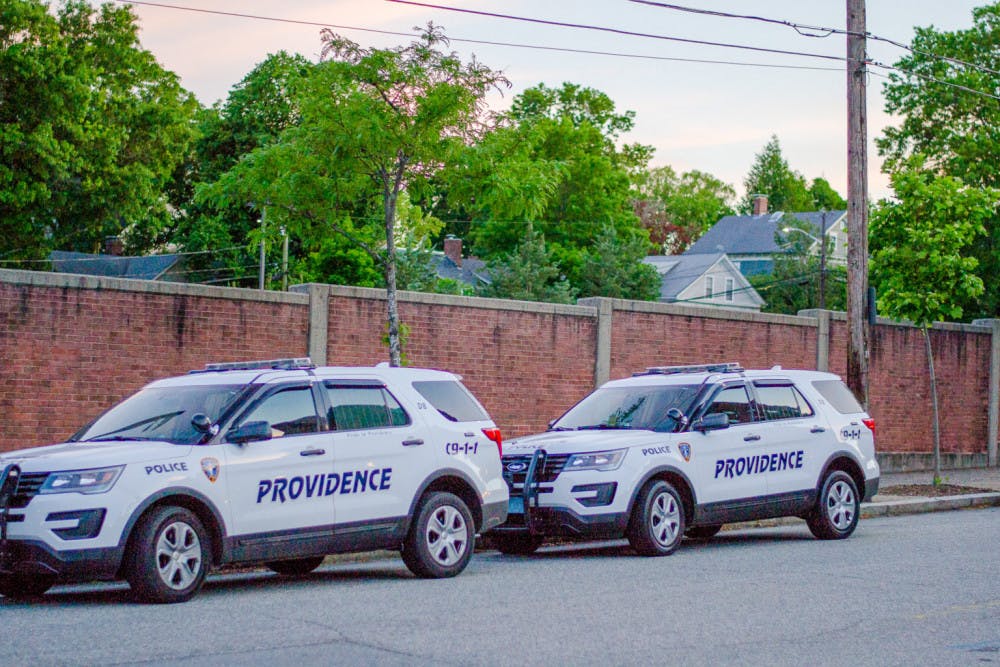After a recent series of violent incidents in the wake of last year’s uptick in local shootings and homicides in Providence, community organizations consider the change necessary to bring violent crime rates down.
So far this year, the Providence Police Department has documented 189 instances of aggravated assault. Additionally, eight Providence residents have lost their lives due to shootings, a 300 percent increase in the number of homicides year to date compared to 2020, before the surge of violence seen in the summer and fall.
The Nonviolence Institute, an organization which dispatches victim advocates and outreach specialists to assist victims’ families and prevent retaliatory acts, has dealt first-hand with the “intense” and “emotional” work of tending to the aftermath of this year’s violent crime, its Executive Director Cedric Huntley said.
“The wail of a mother when they find out they lost their child — you can never unhear that,” Huntley said.
The year’s violence so far reached a peak May 13, when nine people — eight gunshot victims and one person grazed by broken glass — were injured in a shooting on Carolina Avenue. Providence police have said that the shooting may be the largest in Providence history.
“I’m 62 years old. I’ve never heard of this many people getting shot in one incident ever,” Huntley said.
In a press conference the night of the Carolina Avenue shooting, Providence Police Chief Hugh Clements said the shots were fired by rival groups that are engaged in an “ongoing feud.” He added that the suspects and victims “may be one and the same,” prompting police officers to be stationed outside the doors to the Rhode Island Hospital emergency room on the night of the shooting, according to WPRI.
Local activist organization Direct Action For Rights and Equality shared in an Instagram post that the family of a Carolina Avenue shooting victim could not see their loved one in the hospital due to his treatment as a “suspect, not a victim.”
“If Providence police truly believe in the safety of the community … (they would form) community relationships that uplift rather than target people of color and low-income neighborhoods,” Christopher Rotondo, director of organizing, communications and development at DARE, wrote in a message to The Herald on behalf of DARE’s Board of Directors.
In the wake of the shooting, the Providence Police Department has increased patrols in the Washington Park neighborhood where the incident occurred. The department has also confiscated almost twice the amount of illegal guns this year relative to last, Clements said during the May 13 press conference. He added that “we have a gun issue in this city.”
Huntley urged legislators to pass laws addressing gun violence, particularly policies that restrict access to high-capacity magazines and weapons of war, and to better support violence prevention organizations.
The shooting and other acts of violence, Huntley argued, are the result of many factors, including poverty, homelessness, the state of the education system, unemployment, systemic racism and access to guns. Prominent among these factors, he noted, is “the generational trauma” that affects marginalized communities.
Brother Gary Dantzler, founder and executive director of Black Lives Matter Rhode Island, argued that police funds should be reallocated to “infrastructure, jobs and opportunities for African Americans.”
Dantzler attributes much of the recent violence to the “astronomical” economic and educational inequalities that face people of color.
To help counter these inequities, Black Lives Matter Rhode Island opened the first African American Innovation Center, where people in the community can learn about job opportunities, housing and health services, Dantzler added.
Rotondo cited the COVID-19 pandemic as a source of recent unemployment, evictions and social turmoil — leading to increased community violence. In response to this, DARE has sought to help the community by providing services for people facing eviction and working to expand employment opportunities for formerly incarcerated individuals.
“Taking a punitive and naïve approach to violence does not work,” Rotondo wrote. Instead, the organization pushes legislators to raise wages and invest in housing, education and jobs training, adding that control of government resources should be placed “in the hands of those most impacted by political decisions.”
Huntley expressed hope that the unique intimacy of Rhode Island as a function of its size provides an opportunity for collaboration between community organizations that could lead to unprecedented change
“We have an opportunity to be a model for the rest of the country,” he said. “That’s what I believe.”

ADVERTISEMENT




